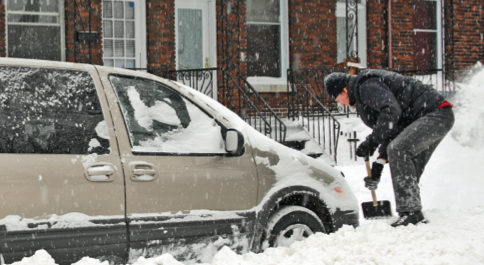On December 14, 2016 the city of Toronto voted for Landlord Licensing after a long battle between tenants and landlords.For twelve years, the Association of Community Organization for Reform Now (ACORN) has been knocking on doors in low to moderate income neighbourhoods asking residents what issues they faced in their community.One problem quickly revealed itself to be an epidemic across the metropolitan: Toronto has a slumlord crisis. Tenants are paying high market rent to live in increasingly worsening conditions. In multi-residential buildings across the city, tenants face ongoing substandard housing issues, include: bursting old pipes (leading to repeated flooding), rising floors, caving ceilings and other water damage as well as mold which is a health hazard, among other things.Chronic infestations of cockroaches, vermin and bedbugs are another huge problem. Many buildings also have continuous elevator issues resulting in frustratingly unreasonable long wait times going up and down in the mornings and evenings. Uneven heating is also an issue during the cold winter months.ACORN, currently boasting 83,000 members, Canada-wide, has been calling for Landlord Licensing since 2008. Landlord Licensing is a cost recovery program that charges the landlord approximately $12 per unit to cover the expansion of a city run Multi Residential Apartment Building (MRAB) inspection program. MRAB was, until now, a reactive inspection program which responds to complaints made by a tenant to the city either by a direct call to the city councillor or by calling 311. Unfortunately, few renters are aware of this option and are left without enough adequate information. Some tenants even mention being afraid of repercussions from landlords if they complain.Landlord Licensing will expand to the MRAB program, in a last minute amendment from Councillor Glenn De Baeremaeker, Ward 38. Six more inspectors were added to the proposed addition to tackle the large task of annual proactive inspections of every building with a minimum of three stories and no less than ten units.The inspection program will be similar to the Dine Safe program, where buildings would have to maintain a set of standards and if caught in violation of these standards would have to pay a fine if the issue is not brought up to standard in the set time. Landlord Licensing will implement a grading system that will be displayed at the front of each building so prospective renters can see the buildings grade before signing the lease.This is a win/win for landlords and tenants as good landlords can boast a good grade, bringing more prospective renters and reducing vacancies. Until now, there was only a self-certification that buildings awarded themselves and is entirely meaningless, a mere advertising stunt. Certification must come from the city so that tenants can trust it has value.Many landlords have fought Landlord Licensing, claiming that there is no need and there are only a few bad apples. Extensive documented research done by ACORN and confirmed by MRAB reveal that the reality is an epidemic of substandard market housing that urgently needs to be rectified. Landlords have distributed flyers using fear tactics as a way to scare tenants to act against their own interests, leading tenants to believe Landlord Licensing would cost them money, calling it an apartment tax. Josh Matlow, City Councillor, Ward 22 has repeatedly stated that the claim is absolutely false. Matlow has been a leader in the fight to protect tenants.One of the first city councillors to join ACORN’s fight for tenants inside city hall, is Janet Davis, Ward 31, who has been a strong and diligent champion for almost one decade. Listening closely to the needs of the people, Davis has helped lay the foundation and together overcome the years of hurdles that have brought ACORN’s Landlord Licensing to this victory. “I want to applaud tenant organizations across the city who have spoken out and are demanding the city take action" said Davis, who wanted to extend her appreciation.










